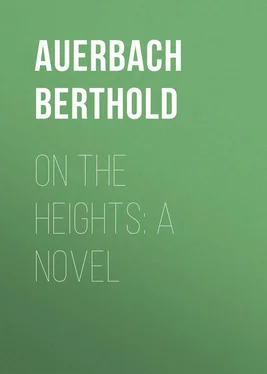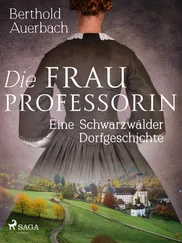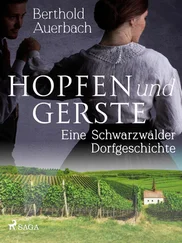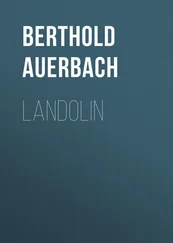Berthold Auerbach - On the Heights - A Novel
Здесь есть возможность читать онлайн «Berthold Auerbach - On the Heights - A Novel» — ознакомительный отрывок электронной книги совершенно бесплатно, а после прочтения отрывка купить полную версию. В некоторых случаях можно слушать аудио, скачать через торрент в формате fb2 и присутствует краткое содержание. ISBN: , Жанр: foreign_antique, foreign_prose, на английском языке. Описание произведения, (предисловие) а так же отзывы посетителей доступны на портале библиотеки ЛибКат.
- Название:On the Heights: A Novel
- Автор:
- Жанр:
- Год:неизвестен
- ISBN:http://www.gutenberg.org/ebooks/33294
- Рейтинг книги:4 / 5. Голосов: 1
-
Избранное:Добавить в избранное
- Отзывы:
-
Ваша оценка:
- 80
- 1
- 2
- 3
- 4
- 5
On the Heights: A Novel: краткое содержание, описание и аннотация
Предлагаем к чтению аннотацию, описание, краткое содержание или предисловие (зависит от того, что написал сам автор книги «On the Heights: A Novel»). Если вы не нашли необходимую информацию о книге — напишите в комментариях, мы постараемся отыскать её.
On the Heights: A Novel — читать онлайн ознакомительный отрывок
Ниже представлен текст книги, разбитый по страницам. Система сохранения места последней прочитанной страницы, позволяет с удобством читать онлайн бесплатно книгу «On the Heights: A Novel», без необходимости каждый раз заново искать на чём Вы остановились. Поставьте закладку, и сможете в любой момент перейти на страницу, на которой закончили чтение.
Интервал:
Закладка:
"Wish, or must, it's all the same. You're always saying that there's no such thing as free will, and with monarchs it is certainly so."
"Your Majesty," said Gunther, in a gentle voice, "the high resolve you have formed was not an act of your will. It is the natural and inevitable consequence of a chain of events and impressions, which have been shaped by your temperament. Fervent natures are always afraid lest they cannot do enough for themselves and for the world. They would like, with every hour-nay, with every breath-to make others happy, or impress the world with some great thought."
"So you, too, can flatter."
"I never flatter. I simply take the diagnosis which, in your case, is not flattering. This excess of sensibility is not health-"
"So you consider my mood as unhealthy-"
"We should not use that term. – But I entreat you. Your Majesty! this tone, with either of us, is hardly-"
"Speak on. I like to hear you. I don't feel hurt that you know of this. I regard you as part of the daylight that was to ripen my resolve."
"Well then, all that is to ripen must needs be subjected to currents of air and even to storms. But I shall bring you no storm, and shall not even speak of the fact that whoever deserts the faith into which he was born, insults his parents; nor shall I tell you that the ceremonies to which we have been accustomed from youth, are the soul's mother-tongue. All that does not address itself to the mind. Mind and reason are the parents of conscious man. It is our duty to live up to our convictions, and I can, therefore, find no fault with a change of religion based upon conviction. But it seems to me, Your Majesty, that your change of faith is simply superficial or, if it be deeper, only from love for your husband. You know, however, that I view all these things from an entirely different standpoint. I believe I know the spring in paradise, whence flows the stream that on earth is divided into so many little rivulets; and these again, to use the words of my friend Eberhard, Countess Irma's father, furnish the power for the mills that grind out sermons. Your Majesty knows that the legend of the four streams that flowed from the tree Igdrasil, which is found in the most beautiful of all books, the Bible, is also to be found in our old German Saga."
"Very well-but I beg of you, my dear friend, spare me your literary curiosities."
"Your Majesty," resumed Gunther, "as long as we remain in the faith of our fathers, we can enjoy great latitude of opinion. Our thoughts can reach far beyond its confines, and no inquisition has power over us: but, as soon as we profess another religion, we forfeit the right to be free. It is our duty to live up to it. One who is noble by birth can afford to admit civil equality, but he who has had nobility conferred on him, cannot do so. Will Your Majesty permit me to say one word more? I regard it as fortunate for mankind in general, and our German fatherland in particular, that there is a diversity of religious beliefs. That of itself tends to preserve feelings of humanity, for thus we cannot help seeing that there are different forms of soul utterances for one and the same thing. A multiplicity of sects affords the best protection against fanaticism and, moreover, helps to prove that religious forms are of no consequence; that is, one can be righteous in any faith and, indeed, without any outward show of religion."
Gunther remained with the queen for a long while, offering further explanations of the ideas he had advanced.
He was still with her, when the canon was announced.
The queen sent word that she desired to be excused, and requested him to come the next day.
When Gunther left, she was still as firm in her resolve as at first. She felt persuaded that this was an action in which no other being should interfere, and, least of all, a man.
She was on the point of taking Irma into her confidence. She felt that the countess was clever and, moreover, a true friend. Unconquerable dread held her back. She feared lest she might appear weak and vacillating in Irma's eyes.
CHAPTER V
For days, the queen remained alone. Walpurga and the child were the only ones permitted near her. She did not wish to speak to any one else, be it her husband, Gunther, or the priest.
One afternoon, when Walpurga was with her, she felt impelled to ask:
"Walpurga, do you know that I don't belong to your faith?"
"Yes, indeed, I do; and I'm glad of it."
"Glad of it?"
"Of course I am; you're the first and only Lutheran I've ever known, and if they're all like you, it must be a beautiful religion."
"It is beautiful, and so are all religions that make good beings of us."
"Why, do you know, queen, that's the very thing my father used to say, and in the very same words? Oh, if he'd only lived long enough to have had a talk with you."
The queen was silent for a long while.
At last she asked:
"Walpurga, if your religion was different from Hansei's, would you go to his church?"
"Why, Hansei's Catholic, as well as I am."
"But if it were otherwise?"
"But it isn't otherwise."
"But just imagine it were."
"But I can't do that," said she, as if about to cry.
The queen was again silent for some time. Presently Walpurga, of her own accord, said:
"Yes, I can, after all. I've thought it out. Why, you're Lutheran and your husband's Catholic. But why do you ask me that?"
"Imagine yourself in my position. If you were a Protestant, would you not visit your husband's church?"
"No, queen, never! As long as I'd been an honest wife while a Protestant, I'd remain one. May I tell you a little story, queen?"
"Yes; go on."
"What was I going to say? – Yes, now I know. – You see, my dear father-the king's physician has surely told you what a good man he was-But I'm beginning at the wrong end; I wanted to tell it to you differently. – Well, as I was going to say, I went to school to a very strict priest who condemned all people that didn't belong to our faith, to the lowest depths of hell. I was once telling my father about it, when he said: 'Purgei,'-he always called me Purgei when he wanted to speak right to my heart-'Purgei,' said he, 'there are many millions of people in the world, and the smallest portion of them are Christians, and what a vile God it would be who would condemn all the rest to hell just because they aren't Christians, when they can't help it, and were born as they are. Don't you believe,' said he, 'that a man's damned for his faith; as long as he's virtuous.' Well, I hold fast by that. Of course, I didn't say anything to the priest about it, for he needn't know everything. I'm sure he don't tell me all he knows."
The queen was silent, and Walpurga soon began again:
"And now I think of something, better than all. Oh, my dear queen, I must tell you this, too. It's about my father, who used to think a great deal. The old doctor, the father of the one who's living there now, often used to say that if father had studied he'd have become a great man. Well, one evening, on the very Sunday that I was confirmed, I was sitting with father and mother on the bench behind our little cottage by the lake. The evening bells were tolling; we had said our aves and were sitting about in front of the cottage, when we heard the Liederkranz. They were coming across the lake in a boat, and were singing so beautifully-I can't tell you how lovely their singing was. And then father got up from his seat, his face glowing in the sunshine, and said: 'Now I know how our Lord in heaven must feel.' 'Don't blaspheme,' said my mother. 'I'm not blaspheming; quite the reverse,' said father. His voice seemed wondrous strange. 'Yes, I know it, I feel it,' said he; 'all churches-our own, the Protestant, the Jewish, the Turkish, and whatever their names may be-every one of them has a part in the song, and though each sings as best he can, they go together very well, and make a chorus that must sound glorious up there in heaven. Let every one sing according to the voice God has given him, for He will know how it will harmonize, and it surely does harmonize beautifully.'"
Читать дальшеИнтервал:
Закладка:
Похожие книги на «On the Heights: A Novel»
Представляем Вашему вниманию похожие книги на «On the Heights: A Novel» списком для выбора. Мы отобрали схожую по названию и смыслу литературу в надежде предоставить читателям больше вариантов отыскать новые, интересные, ещё непрочитанные произведения.
Обсуждение, отзывы о книге «On the Heights: A Novel» и просто собственные мнения читателей. Оставьте ваши комментарии, напишите, что Вы думаете о произведении, его смысле или главных героях. Укажите что конкретно понравилось, а что нет, и почему Вы так считаете.












